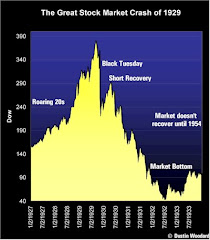One part of the interview focused on pensions. CFIB Presentation PDF
Mr. Michael Prue: In chart 15 your members talk about the wage differential and you talk about the pensions.
Ms. Catherine Swift: Right.
Mr. Michael Prue: Just to deal with the pensions, public employees, both federally and provincially, pay enormous amounts of their gross—
Ms. Catherine Swift: I realize that.
Mr. Michael Prue: —into the pension. You can't take that away. They've paid it, some of them, for—
Ms. Catherine Swift: We're not saying take it away. We're saying freeze it. The federal and provincial employees—the taxpayer is required to match what is put in by the employee. I don't begrudge anyone saving for their own retirement. Knock yourself out. But you will never find a private sector program that is as rich as all of these public sector programs, and right now you are beggaring the private—and it's not just Ontario; I said it's right across the country and some are worse that others.
But you will never find the richer pension than you will get in the public sector, and you retire much earlier.
We've done quite a bit of research on this. The public sector employee works fewer hours, makes more money now—it used to be the pension was a quid pro quo for lower wage levels, decades ago, but those wage levels have come up and exceeded the comparable private sector job, on average.
Any actuary you speak to—and we speak to them quite regularly—will tell you that something's got to give on the public sector pension front, because it has gotten way out of control and it's not even financially sustainable, even if you agreed that people in the public sector should get more than their private sector counterparts and should retire much earlier and so on.
The Vice-Chair (Mrs. Laura Albanese): Thirty seconds.
Mr. Michael Prue: But I don't understand what your members are expecting to happen with this—
Ms. Catherine Swift: Well, why can't things be frozen? Compensation levels could be frozen for a period of time. Private sector should be permitted to catch up. I mean, you want to help lower-income people. The best way to do it is reduce their tax burden. In the last budget—a lot of people didn't notice it; one of my actuary friends did and brought it to my attention—$2 billion was put in for the next three years, simply to cover off shortfalls in public sector pensions. And you know what? That's not even enough. So there's $6 billion in a three-year period alone to deal with this. It's milking everybody dry right now, and we're going to have a crisis in it.
Warren was referencing municipalities in the US going broke and having to increase taxes. You know the main reason they're going broke? Their public sector wage and benefit burden.
The only comment I have is that there is a serious misunderstanding about how much public sector employees pay into their pension plans. It is not as Prue suggests enormous amounts of their gross.
The CD Howe Institute has pointed out that true cost of these pensions in in the range of 34%. Most public sector workers pay well under 10%. This leave the taxpayers to fund at least another 20% into these plans. The problems is most government's only match the employee funding. Thus currently these plans are underfunded to the tune of 10%.
For example, most of the members of the CFIB pay 9.9% into CPP (Canada Pension Plan) to get pensions from it of 25% of earnings.
It will be seen if the Ontario government has heard the message.



I was looking for something like this ,Thank you for posting the great content about student accommodation investment. I found it quiet interesting, hopefully you will keep posting such blogs…
ReplyDelete